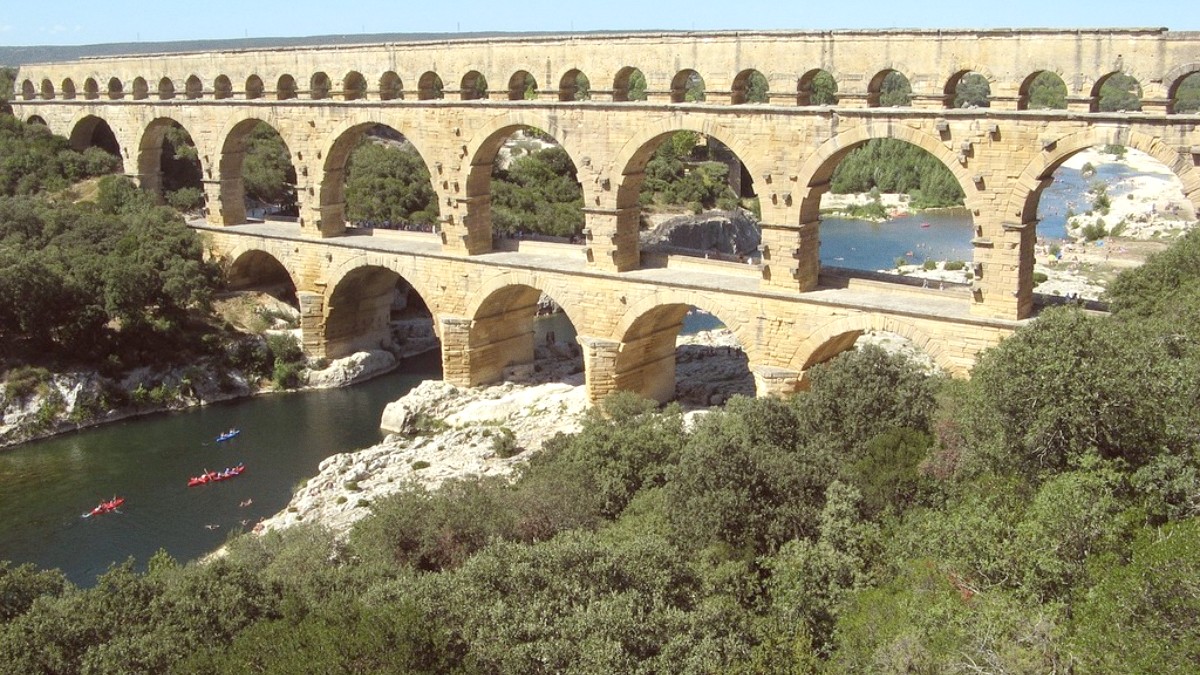
France
Summer (June-August): These months are hot and dry. Average high temperatures frequently hit 28-30°C (82-86°F) and sometimes surpass 35°C (95°F). Rainfall is minimal. Humidity levels generally stay moderate.
Autumn (September-November): Temperatures are pleasant in early autumn, from 20-25°C (68-77°F) in September, then cooling to 10-15°C (50-59°F) by November. Rainfall becomes more frequent, with October often having the most precipitation. Winter (December-February): Winters are mild. Average highs measure 10-13°C (50-55°F), and lows settle around 3-6°C (37-43°F). Rain occurs more often, but snow is rare. Spring (March-May): Temperatures gradually warm, from 15°C (59°F) in March to 22°C (72°F) in May. Moderate rainfall occurs, often with pleasant sunny periods.
Sightseeing and city exploration find comfort in May-June and September-October, with pleasant temperatures and fewer crowds. Spring and autumn present ideal weather for Canal du Midi cycling or boating. July-August are the top months for swimming and enjoying the coast.
Wine tasting is good in spring and autumn, especially during harvest season in late September/early October. The Feria de Béziers (Bullfighting Festival) occurs in mid-August. Plan your trip specifically for this if you want to experience it.
Strong, cold, dry winds from the north.
Can make outdoor activities less comfortable.
Dress in layers, wear windproof clothing.
Intense periods of high temperatures.
Risk of heat exhaustion.
Stay hydrated, seek shade, avoid midday sun.
Heavy, sudden downpours are possible.
Potential for localized flash floods.
Check forecasts, carry an umbrella.
Purchase fresh produce, cheese, bread, and prepared foods from Les Halles de Béziers or outdoor markets for self-catering or picnics. This offers a tasty and affordable meal option. Opt for "Plat du Jour" (dish of the day) or "Menu du Jour" (set lunch menu) at restaurants. These options yield better value compared to à la carte dinner choices.
Béziers' city center makes for good walking. For longer distances, use the affordable local bus network. Carry a reusable water bottle. Fill it with tap water, which is safe to drink. This saves money and lessens plastic waste.
LifeStraw Go Water Filter Bottle can reduce bottled water purchases.
A Hydro Flask Water Bottle is a popular choice for water carrying.
A reliable Osprey Farpoint Travel Pack makes luggage management easier for varied activities.
A travel-friendly credit card with no foreign transaction fees gives better exchange rates. (e.g., Chase Sapphire Preferred)
Travel to France, including Béziers, follows the Schengen Area requirements.
Short-stay (Schengen Visa): This visa allows stays of up to 90 days within any 180-day period. Citizens of countries not part of the Schengen visa-waiver program need this visa for tourism or business. Long-stay Visa: Travelers planning stays exceeding 90 days need a long-stay visa. Visa applications are typically submitted to the French Embassy or Consulate in the applicant's country of residence. Some countries use designated visa application centers, like VFS Global. An appointment is usually needed.
Keep your important documents organized and secure. Carry your original passport and any needed visa documents. Keep photocopies of your passport, visa, and flight tickets separate. Store digital copies on a secure cloud storage service.
Béziers is generally a safe city for tourists. However, petty crime like pickpocketing and bag snatching can occur in crowded areas. Be vigilant, especially in crowded tourist areas and on public transport. Exercise caution in dimly lit or less-frequented areas, notably after dark.
France has a robust healthcare system and generally high safety standards.
Pack a Compact travel first aid kit. Include basic medications like pain relievers, antacids, allergy medication, antiseptic wipes, and Band-aids. (Adventure Medical Kits)
Bring an adequate supply for your entire trip. Keep medications in their original packaging with clear labels. Carry a copy of your prescription and a doctor's note for controlled substances.
Pack remedies for common issues like colds, coughs, motion sickness, or stomach upset.
Sunburn and dehydration are common in summer. Mosquitoes can be present, especially near water (Canal du Midi) in warmer months.
Use High-SPF sunscreen, wear a hat, and stay hydrated by drinking plenty of water.
Use insect repellent, such as Off! Deep Woods Insect Repellent. Pack Lip balm with SPF and After-sun lotion.
A reusable water bottle is recommended for hydration.
France has an excellent healthcare system. Pharmacies are easily identifiable by a green cross sign. They offer advice and over-the-counter medications.
Medical Emergency (SAMU): Call 15; Police: Call 17; Fire Services: Call 18; European Emergency Number: Call 112.
EU Citizens: Bring your European Health Insurance Card (EHIC). Non-EU Citizens: Comprehensive travel insurance is highly recommended (World Nomads, SafetyWing, Insubuy).
The region may experience heavy, sudden rainfall, notably in autumn. This may lead to localized flash floods. Summers can feature intense heat. Stay hydrated and seek shade during the hottest parts of the day. The risk of brush fires grows in dry summer months, especially in the garrigue (scrubland) surrounding the city.
Keep an eye on local news for advisories and check with the tourist office for current safety information.
Monitor local news for any advisories or warnings.
Visit the tourist office for current safety information.
Check your embassy's travel advisories for France.